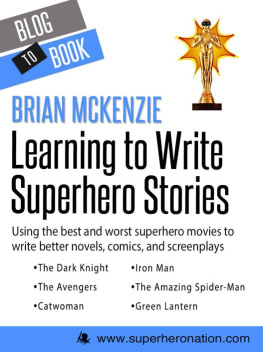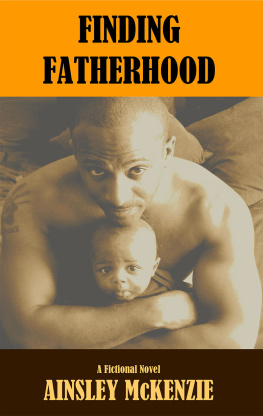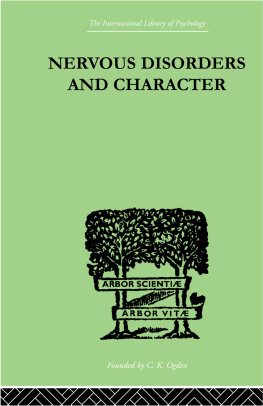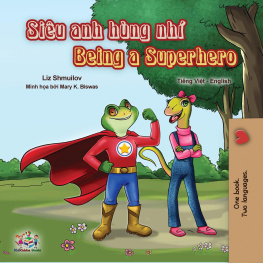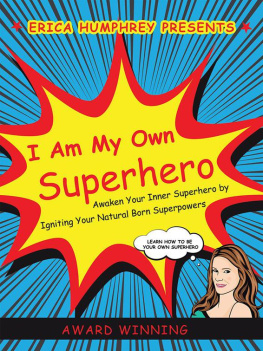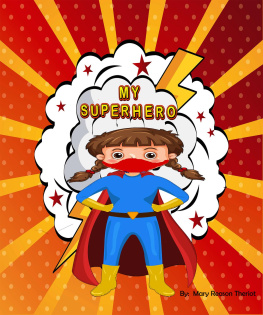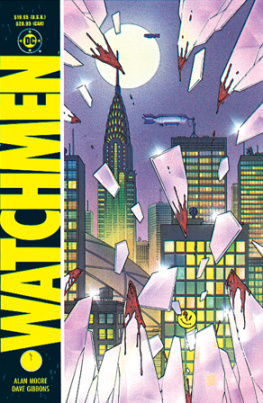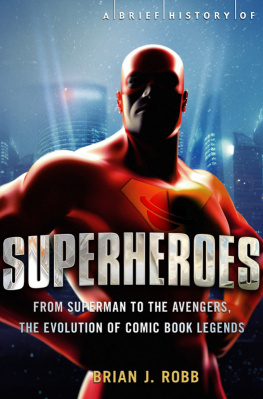McKenzie - Learning to write superhero stories: using the best and worst superhero movies to write better novels, comics, and screenplays
Here you can read online McKenzie - Learning to write superhero stories: using the best and worst superhero movies to write better novels, comics, and screenplays full text of the book (entire story) in english for free. Download pdf and epub, get meaning, cover and reviews about this ebook. City: Cork (Ireland), year: 2012;2013, publisher: Hyperink, genre: Detective and thriller. Description of the work, (preface) as well as reviews are available. Best literature library LitArk.com created for fans of good reading and offers a wide selection of genres:
Romance novel
Science fiction
Adventure
Detective
Science
History
Home and family
Prose
Art
Politics
Computer
Non-fiction
Religion
Business
Children
Humor
Choose a favorite category and find really read worthwhile books. Enjoy immersion in the world of imagination, feel the emotions of the characters or learn something new for yourself, make an fascinating discovery.
- Book:Learning to write superhero stories: using the best and worst superhero movies to write better novels, comics, and screenplays
- Author:
- Publisher:Hyperink
- Genre:
- Year:2012;2013
- City:Cork (Ireland)
- Rating:5 / 5
- Favourites:Add to favourites
- Your mark:
Learning to write superhero stories: using the best and worst superhero movies to write better novels, comics, and screenplays: summary, description and annotation
We offer to read an annotation, description, summary or preface (depends on what the author of the book "Learning to write superhero stories: using the best and worst superhero movies to write better novels, comics, and screenplays" wrote himself). If you haven't found the necessary information about the book — write in the comments, we will try to find it.
EXCERPT FROM THE BOOK
The Amazing Spider-Man
1. To the extent that you cover a superhero origin story, Id recommend focusing on things and approaches we havent seen much of before. I think it would have helped to either spend less time covering the origin story or make it more different than Spider-Man 1. That said, I thought ASMs approach to the death of Uncle Ben was smoother and more thematically effectivewhen Peter has the opportunity to stop the robber, theres a plausible and immediate threat to bystanders. Peter declines and Ben gets killed seconds thereafter. This makes Peters motivation for a life-changing decision (becoming a superhero) more plausible. In contrast, in Spider-Man 1, Peter gets torn up because he doesnt get involved in a relatively minor situation with a police officer present, with only a faint connection between Peter Parker letting the robber go and the robber killing a civilian.
1.1. Peter plays a more active role acquiring superpowers. He was only in the laboratory because he stole an ID and figured out how to thwart a keypad. I think the scene develops him more than just getting lucky at the science fair in Spider-Man 1. (Likewise, he makes his own webslingers instead of getting them from the spider-bite).
2. Beware the idiot ball make sure there are believable consequences to actions. Peter Parker displayed his superpowers in public so many times that I think his classmates would have to be idiots not to notice something was amiss. (For example, the NBA-caliber dunk? Or breaking a goalpost with a football? Or lifting enormous Flash Thompson by the neck?) When characters make decisions, there should be consequences. For example, if the character is reckless with his powers, maybe other characters come closer to figuring out whats going on. Or at least start asking difficult questions.
3. Speaking of consequences, I thought the crane scene was kind of cute. (Peter saves a construction workers kid and the construction worker later pulls in favors at the climax to help Spider-Man). It helps build a contrast between Spider-Mans decidedly limited means and, say, the lavishly-funded Avengers or X-Men. I think its also a more subtle and effective way of showing hes more of an everyman hero than we saw in previous Spider-Man movies (e.g. subway passengers throwing themselves between Dr. Octopus and a crippled Spidey felt sort of hokey to me).
Buy the Book to Read More!
McKenzie: author's other books
Who wrote Learning to write superhero stories: using the best and worst superhero movies to write better novels, comics, and screenplays? Find out the surname, the name of the author of the book and a list of all author's works by series.

